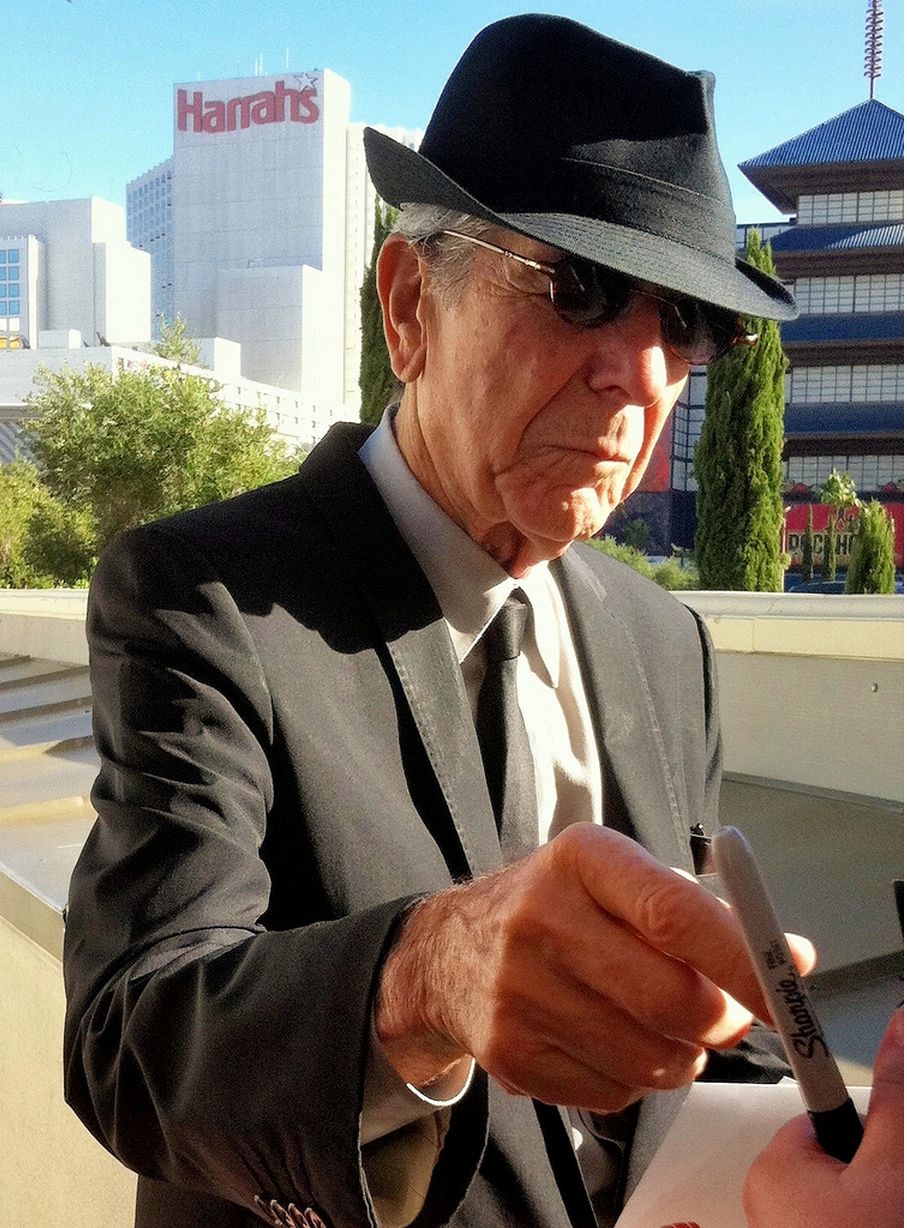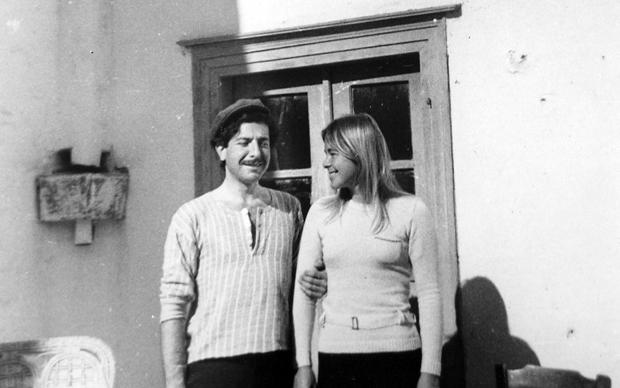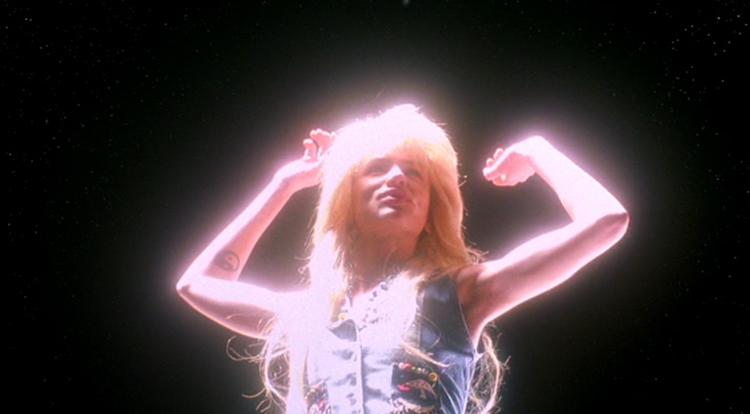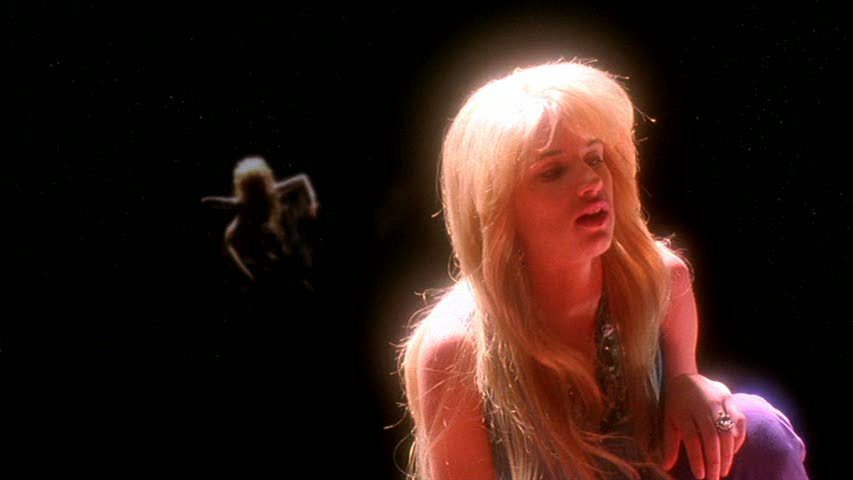Rolling Stone Magazine (http://www.rollingstone.com/music/news/leonard-cohen-dead-at-82-w449792)
Leonard Cohen passed away peacefully at his home in Los Angeles with the knowledge that he had completed what he felt was one of his greatest records," Cohen's son Adam wrote in a statement to Rolling Stone. "He was writing up until his last moments."
Cohen was the dark eminence among a small pantheon of extremely influential singer-songwriters to emerge in the Sixties and early Seventies. Only Bob Dylan exerted a more profound influence upon his generation, and perhaps only Paul Simon and fellow Canadian Joni Mitchell equaled him as a song poet. Cohen's haunting bass voice, nylon-stringed guitar patterns and Greek-chorus backing vocals shaped evocative songs that dealt with love and hate, sex and spirituality, war and peace, ecstasy and depression. He was also the rare artist of his generation to enjoy artistic success into his Eighties, releasing his final album, You Want It Darker, earlier this year.
"I never had the sense that there was an end," he said in 1992. "That there was a retirement or that there was a jackpot."
Leonard Norman Cohen was born on September 21st, 1934, in Westmount, Quebec. He learned guitar as a teenager and formed a folk group called the Buckskin Boys. Early exposure to Spanish writer Federico Garcia Lorca turned him toward poetry – while a flamenco guitar teacher convinced him to trade steel strings for nylon.
After graduating from McGill University, Cohen moved to the Greek island of Hydra, where he purchased a house for $1,500 with the help of a modest trust fund established by his father, who died when Leonard was nine. While living on Hydra, Cohen published the poetry collection Flowers for Hitler (1964) and the novels The Favourite Game (1963) and Beautiful Losers (1966).
Frustrated by poor book sales, and tired of working in Montreal's garment industry, Cohen visited New York in 1966 to investigate the city's robust folk-rock scene. He met folk singer Judy Collins, who later that year included two of his songs, including the early hit "Suzanne," on her album In My Life. His New York milieu included Andy Warhol, the Velvet Underground, and, most importantly, the haunting German singer Nico, whose despondent delivery he may have emulated on his exquisite 1967 album Songs of Leonard Cohen.
<aside class="module-related card-container"><article class="module-related-article"> PHOTOS: Leonard Cohen: 20 Essential Songs
PHOTOS: Leonard Cohen: 20 Essential Songs
After his arrival in New York City during what was a vibrant time with Folk Musicians many in number and parties galore amidst a Music Scene that was unlike the world has ever seen, Cohen quickly became the songwriter's songwriter of choice for artists like Collins, James Taylor, Willie Nelson and many others.
</article></aside>
In October 2016, he released You Want It Darker, produced by his son Adam. Severe back issues made it difficult for Cohen to leave his home, so Adam placed a microphone on his dining room table and recorded him on a laptop. The album was met with rave reviews, though a New Yorker article timed to its release revealed that he was in very poor health. "I am ready to die," he said. "I hope it's not too uncomfortable. That's about it for me."

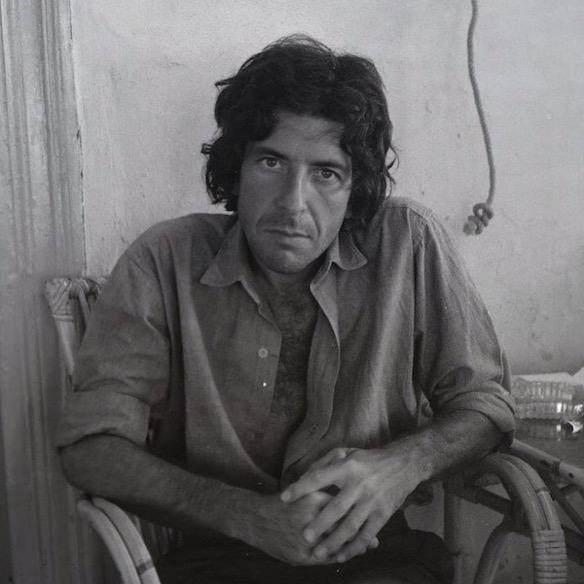
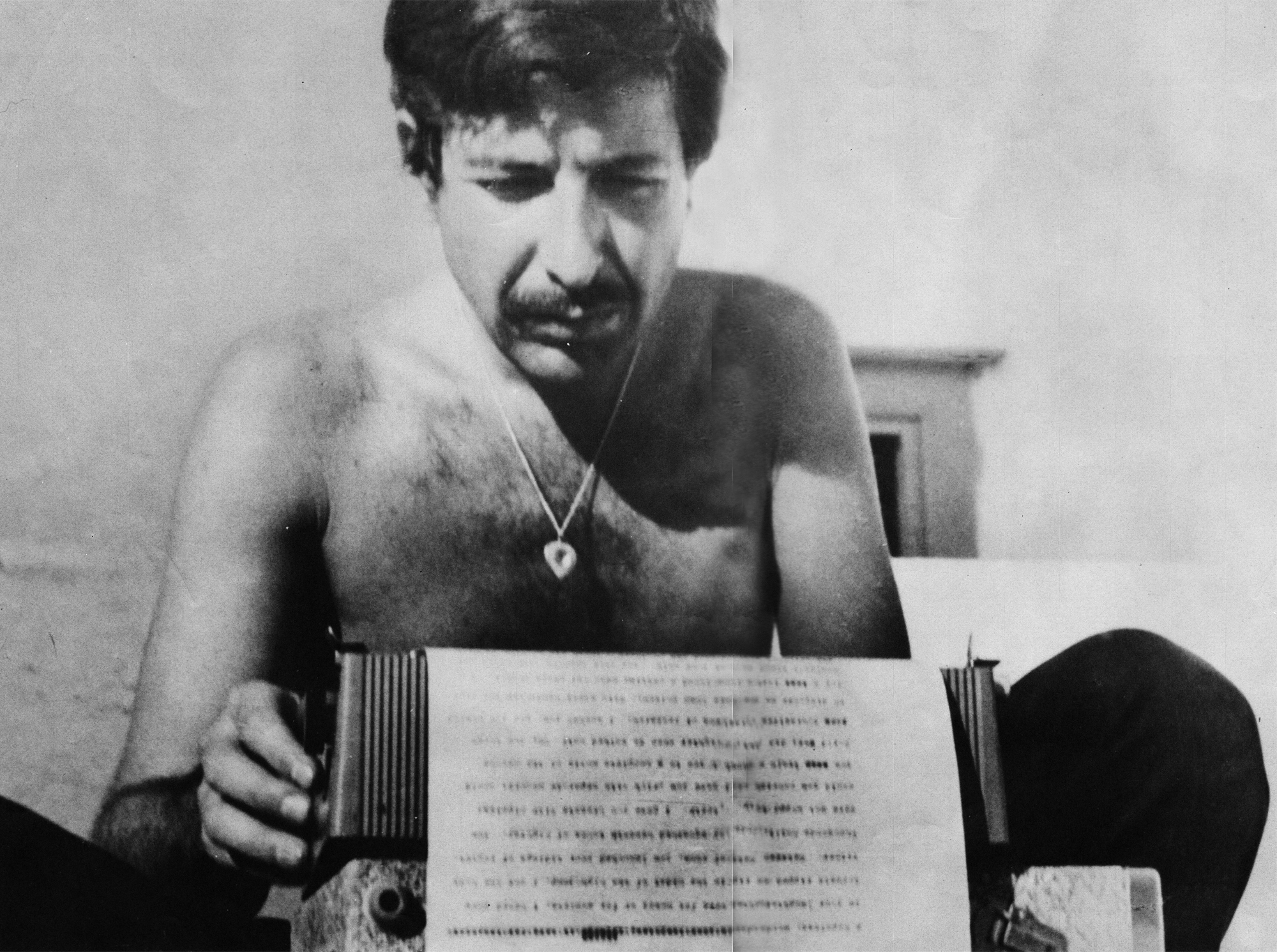
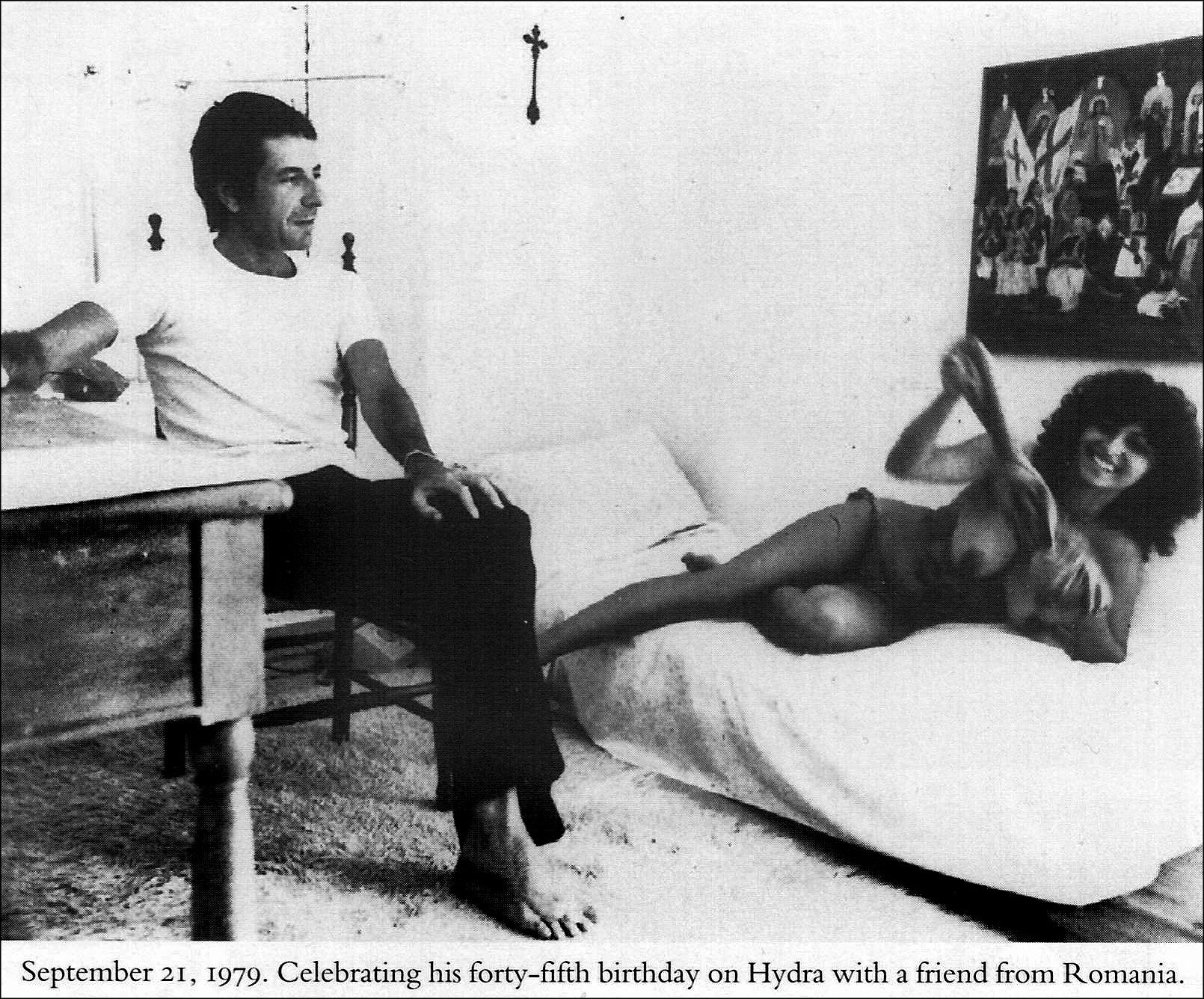


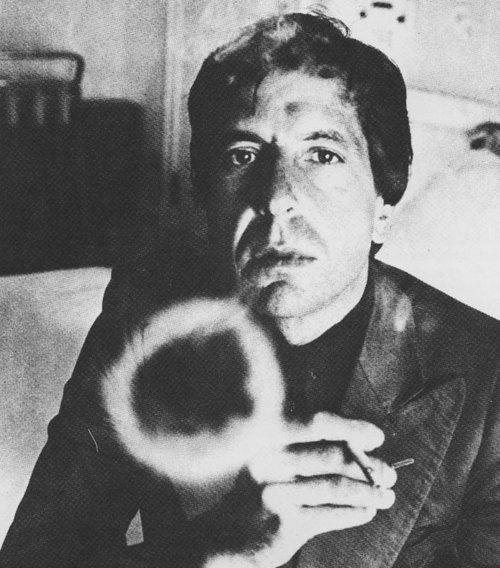
Leonard Cohen passed away peacefully at his home in Los Angeles with the knowledge that he had completed what he felt was one of his greatest records," Cohen's son Adam wrote in a statement to Rolling Stone. "He was writing up until his last moments."
Cohen was the dark eminence among a small pantheon of extremely influential singer-songwriters to emerge in the Sixties and early Seventies. Only Bob Dylan exerted a more profound influence upon his generation, and perhaps only Paul Simon and fellow Canadian Joni Mitchell equaled him as a song poet. Cohen's haunting bass voice, nylon-stringed guitar patterns and Greek-chorus backing vocals shaped evocative songs that dealt with love and hate, sex and spirituality, war and peace, ecstasy and depression. He was also the rare artist of his generation to enjoy artistic success into his Eighties, releasing his final album, You Want It Darker, earlier this year.
"I never had the sense that there was an end," he said in 1992. "That there was a retirement or that there was a jackpot."
Leonard Norman Cohen was born on September 21st, 1934, in Westmount, Quebec. He learned guitar as a teenager and formed a folk group called the Buckskin Boys. Early exposure to Spanish writer Federico Garcia Lorca turned him toward poetry – while a flamenco guitar teacher convinced him to trade steel strings for nylon.
After graduating from McGill University, Cohen moved to the Greek island of Hydra, where he purchased a house for $1,500 with the help of a modest trust fund established by his father, who died when Leonard was nine. While living on Hydra, Cohen published the poetry collection Flowers for Hitler (1964) and the novels The Favourite Game (1963) and Beautiful Losers (1966).
Frustrated by poor book sales, and tired of working in Montreal's garment industry, Cohen visited New York in 1966 to investigate the city's robust folk-rock scene. He met folk singer Judy Collins, who later that year included two of his songs, including the early hit "Suzanne," on her album In My Life. His New York milieu included Andy Warhol, the Velvet Underground, and, most importantly, the haunting German singer Nico, whose despondent delivery he may have emulated on his exquisite 1967 album Songs of Leonard Cohen.
<aside class="module-related card-container"><article class="module-related-article">
 PHOTOS: Leonard Cohen: 20 Essential Songs
PHOTOS: Leonard Cohen: 20 Essential SongsAfter his arrival in New York City during what was a vibrant time with Folk Musicians many in number and parties galore amidst a Music Scene that was unlike the world has ever seen, Cohen quickly became the songwriter's songwriter of choice for artists like Collins, James Taylor, Willie Nelson and many others.
</article></aside>
In October 2016, he released You Want It Darker, produced by his son Adam. Severe back issues made it difficult for Cohen to leave his home, so Adam placed a microphone on his dining room table and recorded him on a laptop. The album was met with rave reviews, though a New Yorker article timed to its release revealed that he was in very poor health. "I am ready to die," he said. "I hope it's not too uncomfortable. That's about it for me."










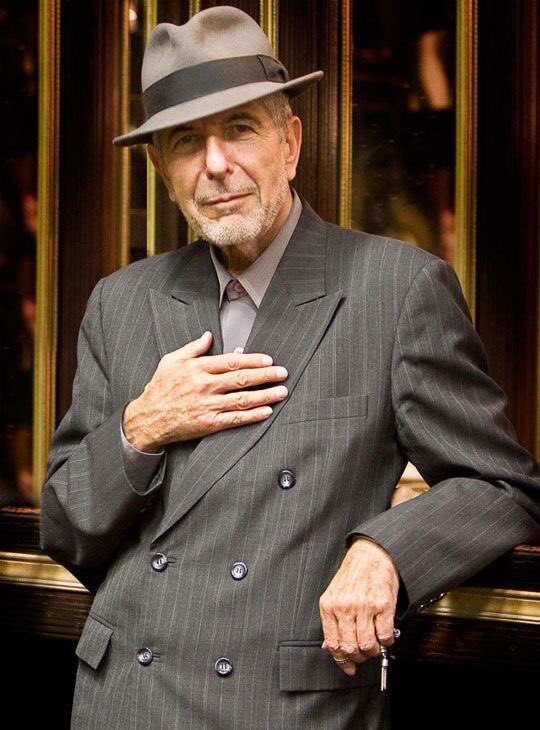
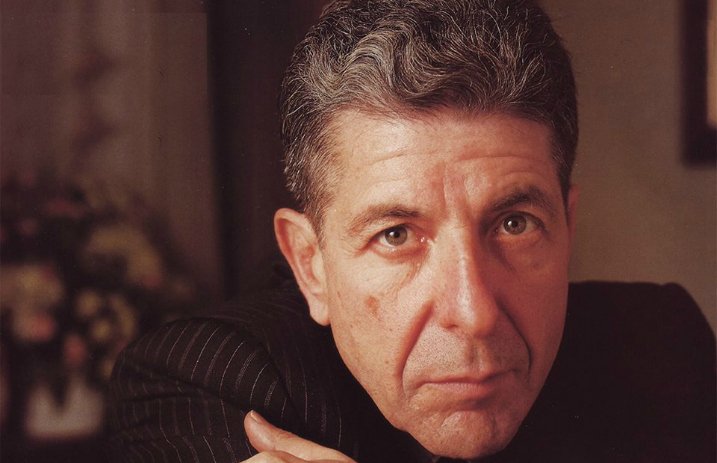


 "
"
